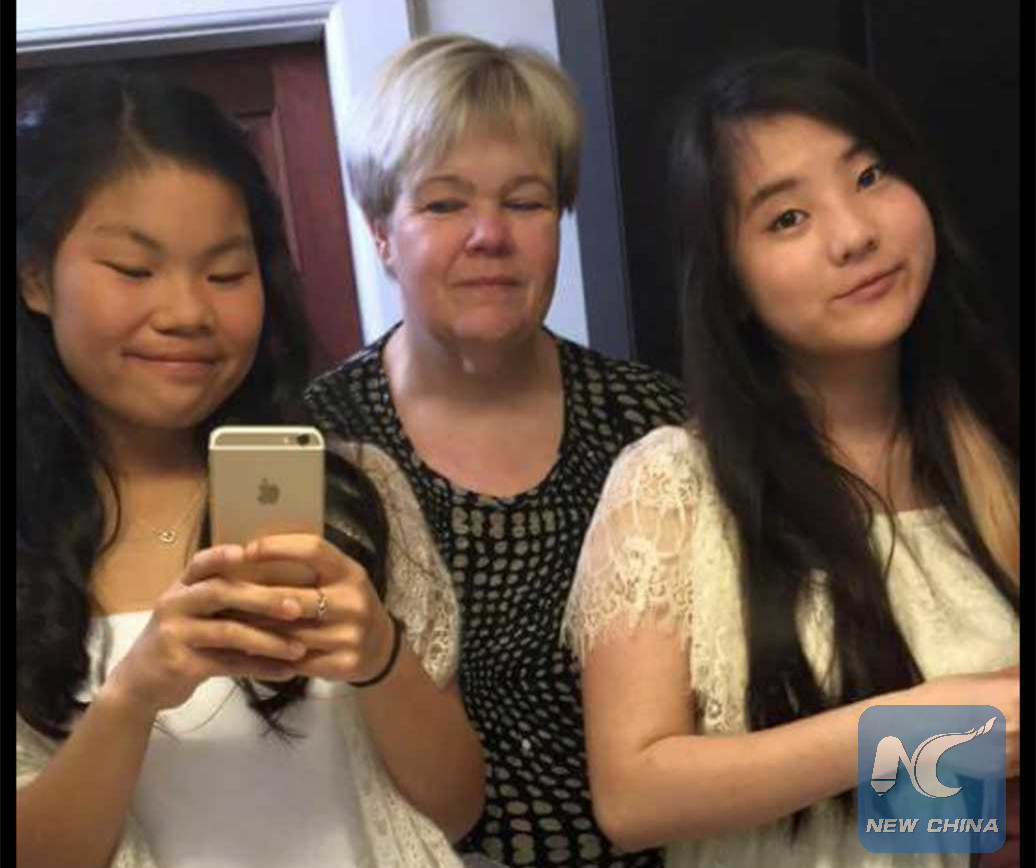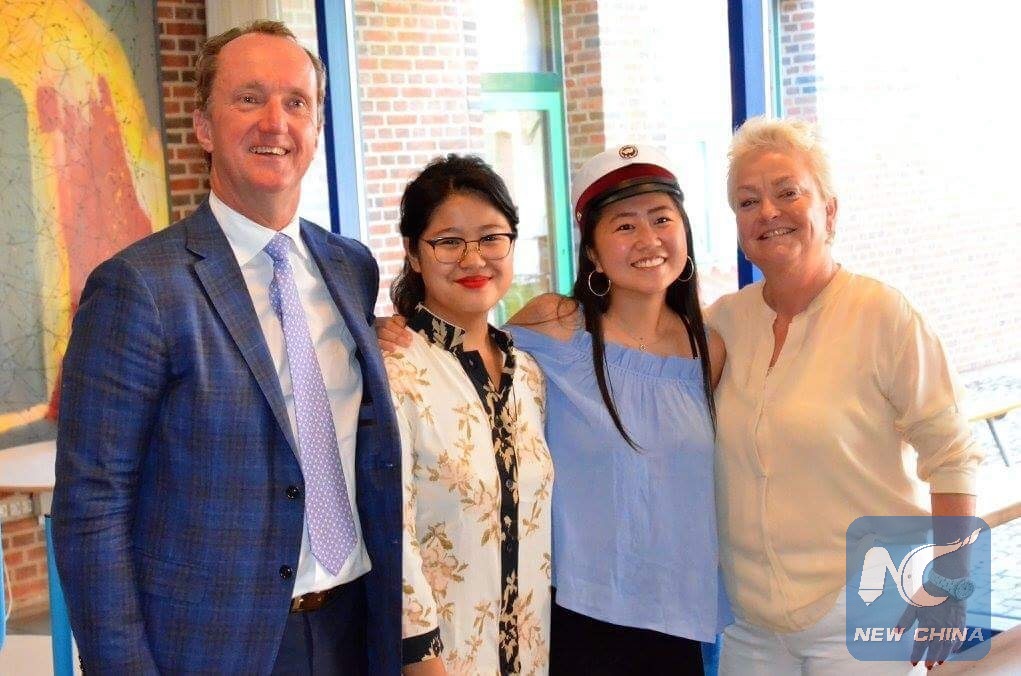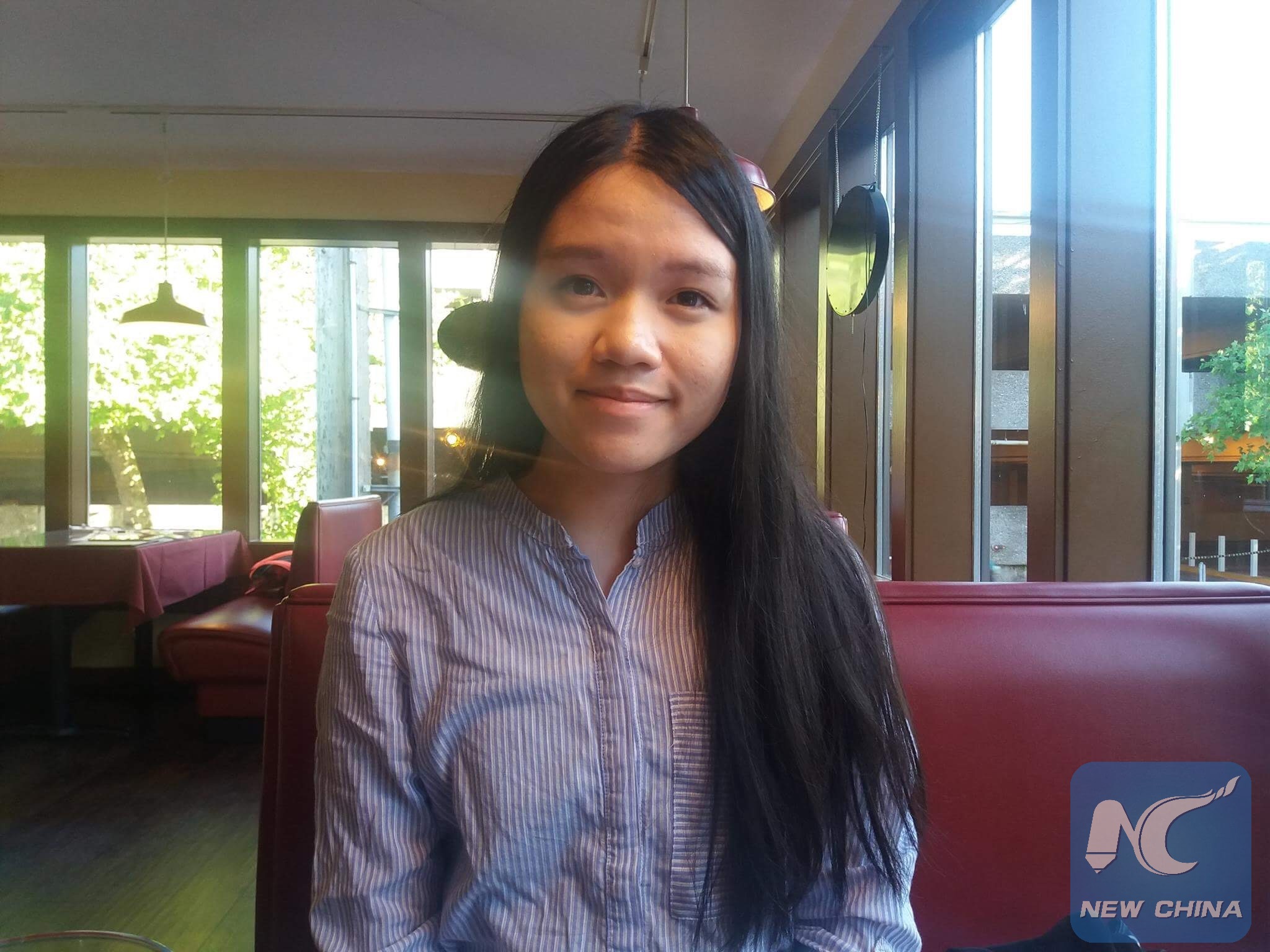
"Searching for roots" ritual in China (Xinhua/Wang Peiji)
By Ru Ge
While studying in Denmark, I have made friends with many young ethnically-Asian Danes who speak impeccable Danish in addition to fairly good English. While they have many differences, one thing in common among them is a burning desire to explore their Asian roots.
As an exchange student in the field of cross-cultural studies, I am particularly interested in collecting the stories of Asian Danes, curious about how they view their Asian ancestry, western-style upbringings, most importantly, how far they will go in searching for their Asian roots.
Lise-Lu Yin Aaen, Laura Simonsen and Michelle L.P. were kind enough to share their unique and thought-provoking stories with me.
Lise-Lu
Lise-Lu is a first year Chinese studies student at Copenhagen University. She has a deep interest in anything Chinese.
"I was found beside a power plant in this area," said Lise-Lu, as she located a city close to the China-Mongolia border on Google maps and zoomed in on it.
"My biological parents didn't leave anything to me, so doctors took a guess at my date of birth," she said. "I had a Chinese name 'Yin Lu' and it was on my medical paper, but I don't even know how I got the name, so I feel it is a big mystery."

Gaby, Lise (right) and mom (photo provided by Lise-Lu Yin Aaen)
For three years, she moved between different foster care families until she was officially adopted by a single Danish woman when she was three. The place where she grew up in Denmark was not a metropolitan city but a small fishing town of only 2,000 inhabitants called Glyngøre, located in the northern part of Jutland Peninsula. When she arrived in 1998, she became the first Chinese person in that small town. In 2004, she welcomed a new family member, Gaby, who was also adopted from China. Gaby is from Xi'an, Shaanxi province.
Her boyfriend is also a Chinese-Danish, originally from Taiwan. When she mentions her boyfriend, she gushes with happiness and contentment. "He is my soulmate, and we click really well together," she told me. But concerning the issue of correct Mandarin pronunciation (which differs between Taiwan and the Chinese mainland) she says she struggles with her boyfriend. Once she said the Chinese word "chi" (eat), which is correct, her boyfriend said it was wrong, and the correct pronunciation should be "ci."
All of these contribute to her curiosity and interest in China, and as she grew older, her passion for China and the Chinese language grew, so she finally made the decision to take up Chinese studies when she was admitted to Copenhagen University.
This coming September, she is going to study Chinese for one semester at Beijing International Studies University in Beijing as an exchange student. She says she is really looking forward to seeing all the important attractions in Beijing.
Laura
Laura is a lovely Chinese-Danish girl majoring in techno-anthropology at Aalborg University Copenhagen as a first year student.
I still remember the night I met her for the first time. It was at the faculty bar of Copenhagen University. When she saw me, the only Asian in the room except her, she came up and asked, "Are you Chinese?" When I said yes, she was so excited and hugged me. "We are fellow countrymen because I am Chinese too, but I cannot speak Chinese because I was adopted by Danish parents and was brought up in Denmark," she said to me.

Laura (second from right), Olivia and their parents (photo by Per Mikkelsen)
I didn't expect to meet her again. But chalk it up to fate; I coincidentally met her many times after that at Copenhagen University and we have since become friends.
She told me she was found in a southern Chinese city days after she was born, with a red string attached to her with her date of birth. Then she was taken in by an orphanage and given a Chinese name that sounds like "Chai Youxin". At about six months of age she was adopted by her Danish parents.
Her younger sister, Olivia, was adopted from another southern Chinese city. She has just graduated from gymnasium (the Danish name for high school).
From what she told me, I know her family has a lot of connections with Asia; both her and her sister were adopted from China and her parents' company has many business connections on the Asian continent.
"My parents own an aluminum company and their main trading partners are from Asia. They travel 200 days a year to do business with their partners. When I don't have school, I travel with them. So I've been to Beijing, Nanjing, Shanghai, Luoyang and Chengdu with them before."
Laura also has a cousin who studied geography and geology at university and he is currently working in one of her parent's partner companies in China.
Like her cousin, Laura has plans to work for one of the Chinese business partners of her parents' company after graduation, most likely in Beijing or Luoyang. She has decided that she will take up learning some Chinese when she starts work.
Michelle
Michelle is a 23-year-old Vietnamese-Danish girl born in Kongens Lyngby in the northern part of Zealand, approximately 15 kilometers away from Copenhagen. Her mom came to Denmark as a political refugee fleeing the Vietnam War. In Michelle's later childhood, she moved to Mølmo in Sweden and received an elementary and secondary education. She is currently studying Information Science and Cultural Communication as a first year student in Copenhagen University.

Michelle (photo provided by Michelle L.P.)
"When I was about 14 and 15, approaching the age of entering upper-secondary school, I suddenly became more 'Asian' than I had ever felt before," she told me. Her mom was very surprised that Michelle turned out to have a very Asian outlook on life although she grew up in such a western environment.
Michelle says she is not 100% sure why her world views and behaviors are more like an Asian rather than Scandinavian. But she guesses it might be due to the reason that she feels her Asian identity is so different in the Scandinavian environment, where Asians are a decided minority. Sometimes in the street, strangers who see her Asian face use greetings in Asian languages like "nihao", "konnichiwa" or "sawadee."
"Yes, I do think it's racist since they're mocking Asians for merely being Asian, and yes, I don't necessarily think this has made me more 'Asian,' but I guess it has made me feel more different. That kind racism with the greetings and the proceeded laughing is very condescending."
When talking about her mom's homemade Vietnamese dishes, Michelle seems especially proud. She has invited her friends to eat Vietnamese home cooking, and whether it's spring rolls mixed with stir-fried pho, or pho noodle soup, her friends all seem to love everything they try. I think this sense of pride in a culinary heritage that is celebrated all over the world and enjoyed by people of all races is something really special about being Asian -- it certainly is for Michelle.
In addition to that, she has started gravitating towards Asians socially because she has found that she has more in common with them, just as they are more inclined to accept her. She feels a sense of belonging in an Asian group of friends.
Because of her wish to look for a sense of belonging, maintain her unique Asian identity, and trace back her roots, she has become increasingly passionate about familiarizing herself with Asian culture. She studied Vietnamese and took courses on Chinese characters, basic Chinese greetings and Chinese history. She told me that she had written a paper about the Qing Dynasty (1644-1912) before as a class assignment. In addition, she is also interested in Korean culture. When she traveled to Korea, she was instantly drawn into the "feeling" of that country.
There is an old saying in Chinese: fallen leaves will return to the roots, reverting to their own origin. Although ethnically-Asian Danish live far away from their ancestral home, and very possibly lead a completely different life from the sort they would live in Asia, they are connected to their homeland through a deep sense of belonging, and this propels a desire to explore their roots and to nourish their unique cultural heritage.
The life stories, struggles, and accomplishments of these three girls show that the search for one's roots is an eternal theme that is an inseparable part of the human condition. No matter where one is from or where they grew up, we are all driven to get in touch with our past and to shape our future based on our understanding and appreciation of where we came from.

